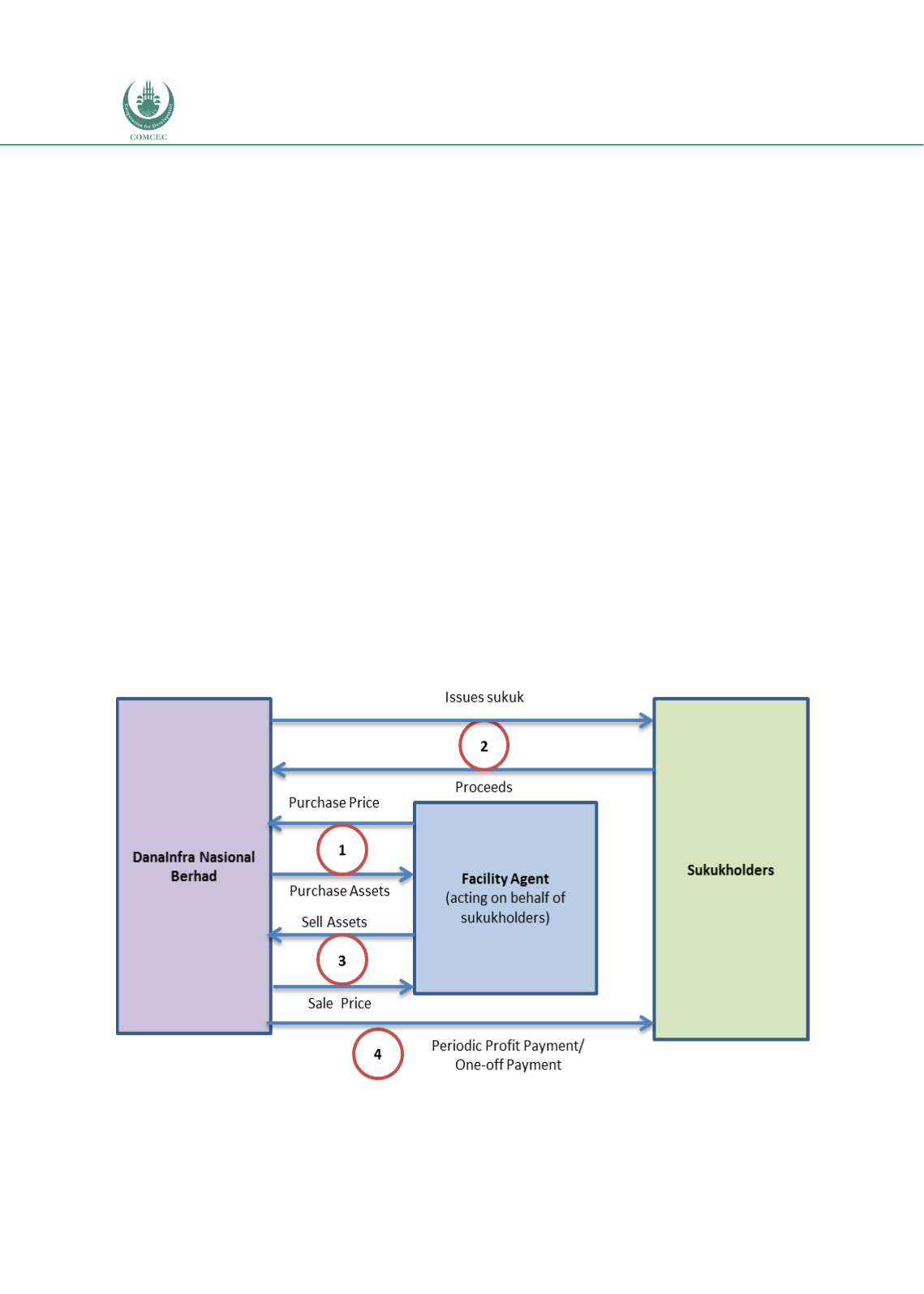

Infrastructure Financing through Islamic
Finance in the Islamic Countries
106
Programme has been implemented at 83 schools in 10 states, providing better outcomes for
over 65,000 Malaysians students.
In 2017, Khazanah issued the second tranche of the RM100 million sukuk that also had a retail
component that gave opportunities to individuals to participate in the scheme. As in the case of
the first issue, the sukuk had features of the step-down of returns upon achieving KPIs and the
option to donate the principal to the Trust School Programme.
Case 2: DanaInfra Retail Sukuk
DanaInfra Nasional Berhad (DanaInfra), a company owned by the Ministry of Finance of
Malaysia, was established in 2011 to undertake the funding of infrastructure projects assigned
by the Government of Malaysia. The first infrastructure project initiated by DanaInfra was the
USD 6.2 billion Klang Valley Mass Rapid Transit (MRT) Project. DanaInfra raised a total of
RM2.5 billion (USD 789.14 million) by selling different series of
sukuk
to partly cover the total
cost of the project.
The
series of retail sukuk included RM300 million (issued February 2013
with a 10 year maturity), RM 100 million (issued October 2013 with a 15 year maturity), and
RM 100 million (issued July 2014 with 7 year maturity) paying a profit rate of 4.0%, 4.58% and
4.23% respectively. The sukuk was structured using a commodity murabahah contract and
coupon payments were made semi-annually. Priced at MYR 100, the minimum subscription
amount of the retail sukuk was MYR 1000. Investors could buy the
sukuk
by using different
modes such as internet banking or through automated teller machines (ATMs) of participating
banks and financial institutions (Star 2014 and DNB 2014). Guaranteed by the Government of
Malaysia, the DanaInfra Retail Sukuk was listed and traded on Bursa Malaysia.
Chart 4.2. 13: Structure of DanaInfra Retail Sukuk
Source: Haneef (2016)
















